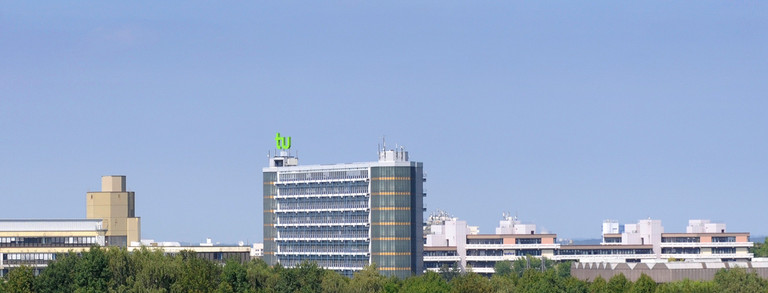Action Against Disinformation Enters Next Round
- Top News
- Research

From the wars in Ukraine and Gaza to climate catastrophes and the elections in Germany, the US and at European level: The recent past was shaped by events with enormous potential for disinformation. To counteract the dissemination of such disinformation, GADMO – an alliance between the Institute of Journalism and the Department of Statistics at TU Dortmund University, the fact-checking editorial teams at the German Press Agency (dpa), Agence France-Presse (AFP), Austria Press Agency (APA) and CORRECTIV, as well as AIT Austrian Institute of Technology – has been collaborating for almost three years. GADMO is part of the Europe-wide “European Digital Media Observatory” (EDMO), which is funded by the European Commission and covers all 27 EU member states and Norway.
Know what’s fact
Since its launch, GADMO has established itself as the first port of call for fact checks and scientific analysis in the area of disinformation. Among the milestones achieved so far are an extensive online fact check archive with more than 3,800 articles. Each month, around a hundred new fact checks are added that help users to debunk false assertions. The GADMO team also offers video training courses for various target groups: Young people learn the basics, i.e. how to distinguish between disinformation and reliable sources, while media professionals receive more in-depth assistance with analyzing AI-generated content and using digital research tools.
GADMO has launched the second phase of the project under the new slogan “Know what’s fact”. In addition to traditional fact-checking, the focus will now shift to investigative research, scientific analysis, and media literacy offerings for parents and older target groups. The new “GADMO Brief” format will feature a monthly evaluation of the work of all certified German-language fact-checking organizations. The results of the joint work will be shown on a dedicated Instagram channel. “With the largest German-language fact-checking hub and new formats such as the GADMO Brief, the network is demonstrating how powerful cooperation can be,” says Teresa Dapp, head of the dpa’s fact-checking team. “In the next phase of the project, we want to reach even more people – on the channels that are relevant to them.” In the area of media literacy, the team at the Institute for Journalism will evaluate existing programs to determine whether they are suitable for teacher training students and for use in school lessons. In addition, the IJ team will curate the materials, translate them if necessary, and prepare them in such a way that teachers can easily use them in class.
Positive interim result despite challenges
After the first funding period, the GADMO team can report a positive interim result. It is, however, concerned about current developments, especially at large tech companies such as Meta, as the termination of the fact-checking program in the US could potentially have an impact on Europe as well. “In the shape of GADMO, we have successfully produced several outputs to counteract disinformation campaigns – a website with numerous fact checks, media literacy materials and research results with a strong practical focus. We are particularly pleased about the many synergies we have been able to harness in cooperation with our partners. At the same time, fact checkers are currently under tremendous pressure and exposed to attacks – something we find very worrying,” says Professor Christina Elmer from the Institute of Journalism, the coordinator of the GADMO project. “In research, too, we still face major challenges – for example, when it’s a matter of accessing and analyzing platform data. This makes it all the more important for us to be able to continue with GADMO and carry on campaigning together for fact-based social discourse in the digital space.”
The GADMO team was particularly active around the time of elections. In 2024, the “super election year” that saw the European elections and elections in three of Germany’s federal states, a GADMO Report critically analyzed how large platform operators, who had signed a declaration of commitment as part of the Code of Practice, handled politically motivated disinformation. Despite the measures announced, especially in view of the elections, there was evidence of politically motivated deepfakes and canvassing that was not labeled as such. Prior to Germany’s federal elections in February, GADMO published a weekly newsletter on the circulation of fake news, which reached around 4,000 subscribers and highlighted, among other issues, recurring narratives such as accusations of election rigging.
Contact for queries:





![[Translate to English:] Partner Four hands are holding the green logo of TU Dortmund University](/storages/tu_website/_processed_/1/d/csm_Partner_Nicole_Rechmann_KW_670eba0154.jpg)




![[Translate to English:] Forschung An apparatus with tubes in a laboratory](/storages/tu_website/_processed_/0/c/csm_Forschung_Juergen_Huhn_4fa3153b51.jpg)
![[Translate to English:] Studium Five students are sitting in a lecture hall. They are talking to each other.](/storages/tu_website/_processed_/c/9/csm_Studium_FelixSchmale_dbdbfb0dd7.jpg)








